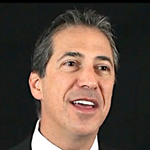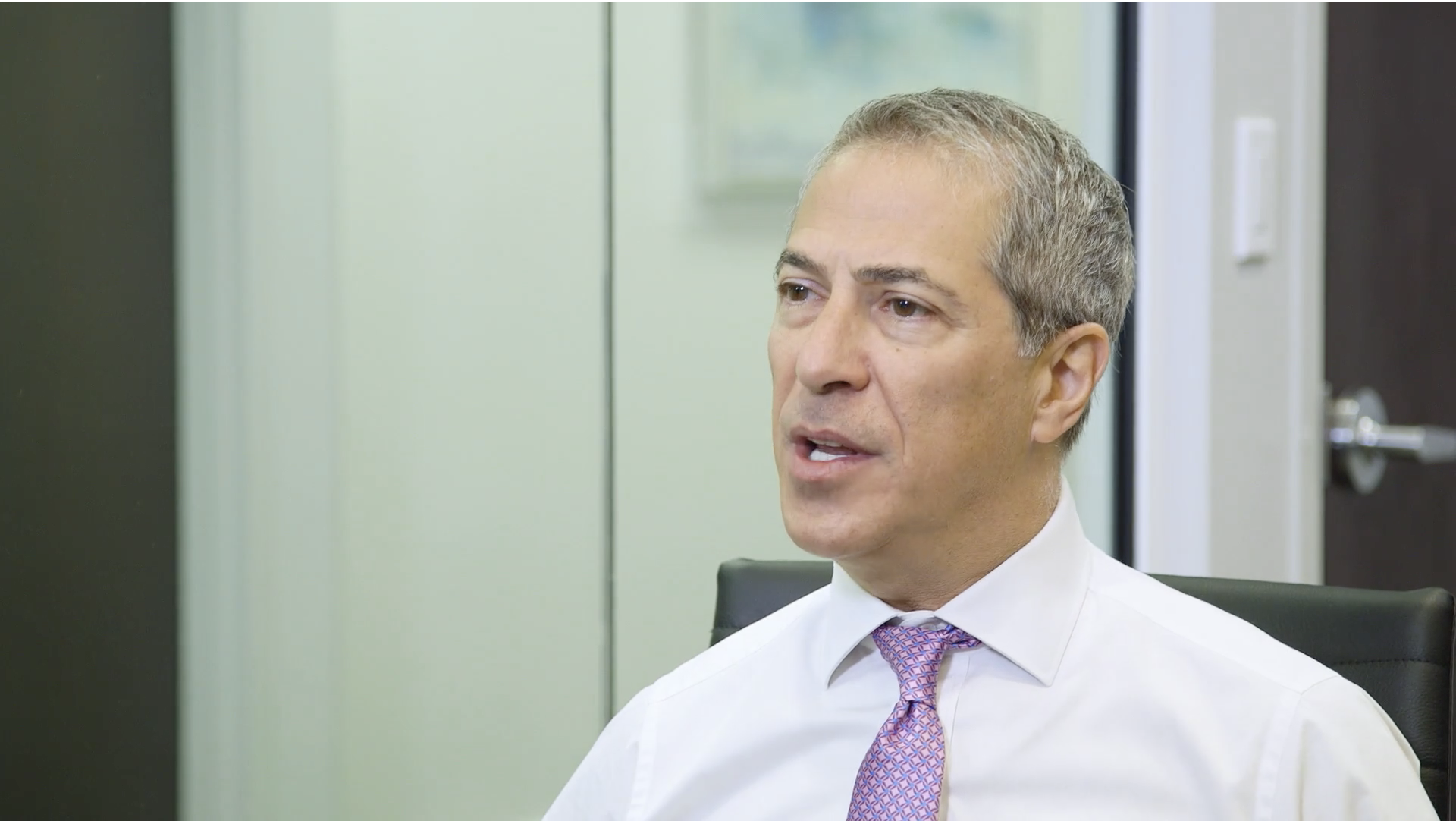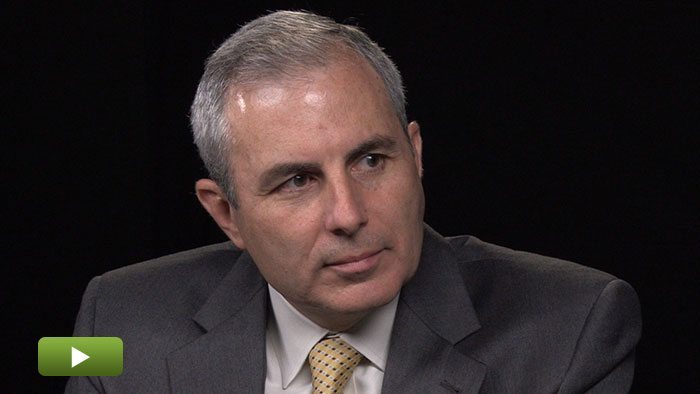Turnarounds and Beyond
When Sun Capital Partners acquires a deeply distressed business, its first goal is to stop the bleeding, according to Marc Leder, Co-CEO of the distressed and turnaround firm. What comes next ranges from financial triage to, a hands-on effort to instill a better corporate culture.
In a wide-ranging interview with Privcap, Leder discusses the current activities of his $8 billion firm. He discusses the effects of the ongoing global financial turmoil on Sun Capital’s deal flow, the difference between trading-oriented and control-oriented strategies, how to identify a company worth saving, why his firm’s deals and exits are not “driven by the markets,” the frequency with which portfolio company managers need to be removed, what the consumer-oriented companies in his portfolio indicate about the economy, whether the “distressed” label scares away some sellers, and why Sun Capital is “very busy” in Europe and the US, but for “completely different reasons.”
Transcript Download Transcript
Marc Leder, Sun Capital Partners: A tough economic environment definitely helps our deal flow. But when people think of the distressed investment space, they usually mean the other people. What I mean by that is there’s really two niche strategies in distressed. There’s distressed debt – trading in and out of distressed debt securities. When there’s high levels of default, that market becomes very robust, very exciting. It tends to be a pretty cyclical strategy. A lot of the value added, the money made is in the trade before the closing. Sometimes the debt becomes equity – control, non-control. Our niche, as you know, is controlled buyouts of distressed companies. That tends to be a pretty steady, consistent strategy. There the overpriced add-on acquisitions. They’re the flawed systems upgrades and facility consolidation. So we get deals year in and year out. With that said, if it’s a slow economy, a mediocre company is going to struggle, and a bad company’s going to really hit the wall. We’ve actually analyzed it over the years and the general economy, typically, will increase our deal flow by about 20%. But that’s just 20%. It’s not like it doubles or triples because of a tough economy. Privcap: In a bad economy, are more bad companies for sale? Leder: For every one company that should be fixed, should be saved, can be fixed, there’s probably nine that shouldn’t. They’re secondary and tertiary players in an industry. We, at least, believe that the phrase Jack Welch coined which is, “You need to be one or two in an industry, or don’t be in it at all,” is very thoughtful and spot on. So we look for market leaders. They tend to survive good times and bad times, good management and bad management. They’re the companies worth saving. Then players that are number five out of five in an industry here or number six or seven out of six or seven in the industry, they may proliferate in great economic times. But when things slow down, they really have no reason for existing. They tend to be consolidated or just go away. Privcap: In Q2 2012, is Sun Capital a net buyer or a net seller of portfolio companies? Leder: I would say we’re actually pretty neutral right now. Our buying and selling is not really driven by the markets. I think the large cap private equity firms are highly correlated to the markets, particularly financing, but also the equity markets. We buy, typically, 30 companies per year– half platform, half add-on– year in, year out. As I said, when there’s a really tough economy, maybe a little bit more but we’re pretty consistent and steady. On the exit side, we don’t really look to exit because the markets are hot. We exit once we fix the business, and the earnings growth goes to a more normal GDP or two times GDP-type growth versus we try to double, triple, quadruple earnings, or take a couple from losing money to become fairly profitable. This year we’ve actually exited five portfolio companies in the first quarter, our most active quarter ever. But we also bought five companies– five platforms and five add-ons– so pretty neutral in terms of portfolio. Privcap: As your firm attempts to improve the companies in which it invests, what tools do you find you use the most? Leder: It’s pretty consistent irrespective of the environment. First thing we’ve got to do is build a great management team. Our operators are meant to be coaches. They’re not meant to go in and replace a management team. We have about 85 portfolio companies. We can’t run all those companies throughout the world from our offices in Boca, London, and elsewhere. We firmly believe in a main tenet of private equity, which is every company needs a great management team with ownership and options in their portfolio company that have no distractions, no other interest, no other activities. So the first thing is always building a great team. Second is you got to have the right strategy. Again, we only look for market leaders. But industries change. Competitive dynamics change. You’ve really got to think through the company’s strategic position, what their strategy should be. Then the third thing is really building a great culture, something we really learned during the global financial crisis. We had a lot of companies doing well when the world fell apart. And the ones that struggled more were doing well but didn’t have great cultures. It wasn’t something we’d focused on. And at Sun Capital, culture’s always been important to us. But we didn’t really push it down to our portfolio companies. Now we do. That’s one of the first things we work on, as well. Now those three things, all assume the company is somewhat stable. A third of our deals are EBITDA negative. Or if not the only one of the few groups that will buy EBITDA negative businesses. So these are companies that are entering the ER, the emergency room. The first thing we’ve got to do is stop them from bleeding, get their vitals to be stable. Then we can start thinking about what’s the right strategy and building the culture. But those things we also start working on before closing. Privcap: ‘Improving a company’s culture’ sounds unscientific. What do you mean by this? Leder: In order to improve something, first you have to measure it, almost always the case. So there are a handful of really good quality firms out there that actually will do a study, a survey, among your employees on your culture. We used to suggest to portfolio companies they do it. Now we require it. We do it the first time shortly after we buy the company– again, unless it’s in the ER. If the company is bleeding, jobs are being lost, you’re not going to have great culture. You’re not going to great morale. And, by the way, culture and morale are very different. Culture’s more do you have a common vision? Does the entire organization know where the company’s going? What it stands for? What its advantages are? Morale is how people feel. So we require every company, shortly after we buy it or after we get them through the ER, to do a study internally on their culture. Then it points out where they’re weak and where they’re strong. We work with the management team, then, to improve where they’re weak and continue to build where they’re strong. Then we do it every year and watch the trends. Privcap: How often is management replaced after you buy a company? Leder: It’s probably about a third, a third, a third. In a third of our deals, there’s a good team in place. Maybe a sister division deteriorated and dragged them down with them because they caused liquidity crisis. Maybe it was an orphan division of a major company, and the management team was strong, but corporate wouldn’t let them make any changes, wouldn’t let them invest in the business. So in about a third of the cases, we leave the team alone. Now we still, hopefully, provide the world-class coaching I talked about. But we don’t make changes to the team. Another third of the cases, the team is the problem. Usually a bad CEO has a lot of bad direct reports. It just goes right through the organization. We do a lot of deals with our management teams. We do a ton of corporate carve-outs. So often we’ll buy plants, divisions, facilities, regions of a major company. There just is no team, so we have to build one from scratch. Then the other third of the cases, it’s somewhere in between. A great CEO but never really focused on their numbers– as a result, weak CFO, wasn’t that big a deal when the tide was rising and the company was doing well. But when the company’s struggling, you got to know your numbers. Actually, we think you always need to know your numbers. Or maybe it’s a pretty good team with a great head of operations who has a manufacturing background, when the whole industry’s moved offshore, and you really need to become more of a sourcing organization. So we need to come in, assess that, and change out a great manufacturing person for a great sourcing person, hopefully with some place else in our portfolio to put that manufacturing person. Privcap: What opportunites are you seeing in Europe now versus North America? Leder: In North America, we are very busy. In Europe, we’re very busy for completely opposite reasons, which is what’s kind of intellectually interesting. Europe, no surprise that we’re busy. There’s a lack of liquidity. Lenders are not kicking the can. Borrower’s that are defaulting or have tight liquidity or other issues are being forced by their lenders to solve their problem, bring in new money, bring in new ownership also. A lot of lenders realize it’s not just money. You need to have the expertise and the experience to fix a business that’s broken. So in Europe, it’s pretty obvious. It’s that incremental 20% deal flow that I talked about before. Also, we’ve kind of built a large enough team– we have 35 people or so in Europe, which is more than most European funds. We’ve been there nine years. We’ve done probably 40 deals on our history. So we’ve gotten to a point where we have the critical mass, the brand, the reputation, the track record, the deal flow to have a busy business in Europe. In the United States, the financing environment right now is outstanding. There is a flood of liquidity in the bank and the high-yield markets. The economy is not great, but it’s not too bad. So you might wonder why are we so busy. Actually, we wondered that ourselves and started talking to investment bankers and lenders and did some talking internally. What we concluded is there’s a huge pent up supply of businesses for sale. There was very little M&A second half of ’08, none in ’09. In 2010 sellers came to the market and buyers were still trying to capture the discounts available in 2009. Sellers rightfully said it’s not 2009 any more. Things have stabilized. I don’t need to get a spike price like I would have in 2006 or 2007, when the economy and the financing was hot. But I’m not going to take a deep discount. There weren’t that many deals getting done. First half of 2011, it finally started to open up. But then second half, financing shut down and so did the M&A market. So you’ve got this huge supply of companies for sale. Now with that said, you have a lot of private equity firms out there and a lot of strategic buyers that are now interested in growth through acquisition. The problem is that most private equity firms, if they don’t have a heavy emphasis on operations the way we do, if they don’t have a big operating team, if they can’t really improve margins, they’ve realized the only way to make money is to find a rapidly growing company or industry. So most private equity firms are focused on the top 5% or 10% of the businesses that are for sale. Everything else they’re ignoring. So we’re picking up pretty good businesses, not rapidly growing, probably GDP-type growth, but making money, not kind of the train wrecks that we often deal with. We’re buying them at four, four and a half, five, five and a half times. We’re getting good capital structures. We can drive some margin improvements and thoughtful capex to make them more profitable and make our returns. Privcap: Does Sun Capital’s profile as a ‘turnaround’ specialist ever scare away potential sellers who don’t view themselves as in need of a turnaround? Leder: We’ve closed 30 deals per year on average for the last six years. So we’re not going to be bottom feeders getting 30 deals a year done. We have paid five, six, six and a half times EBITDA We’re not paying eight, 10, 12 times EBITDA. But we’re not buying rapidly growing companies either. So we pay fair prices, given the problems and challenges facing the business at the time that we acquire it. With that said, there’s often sell processes where the owner or the corporate development officer, if it’s a large company, will ask about us, will do a little internet research. Our website says turnarounds under performers and special situations. We are known as a de-value buyer. They might suggest to the investment banker, I wouldn’t show this to Sun Capital. It’s a healthy company. It’s doing great. We’re going to get a premium value. Once in awhile they’re right. But let’s face it, on a scale of one to 10, where 10 is a pristine, great company like Apple Computer, and one is a train wreck, only 10% of the companies are 10s. 80% are eight or below. That’s really what we’re focused on.




